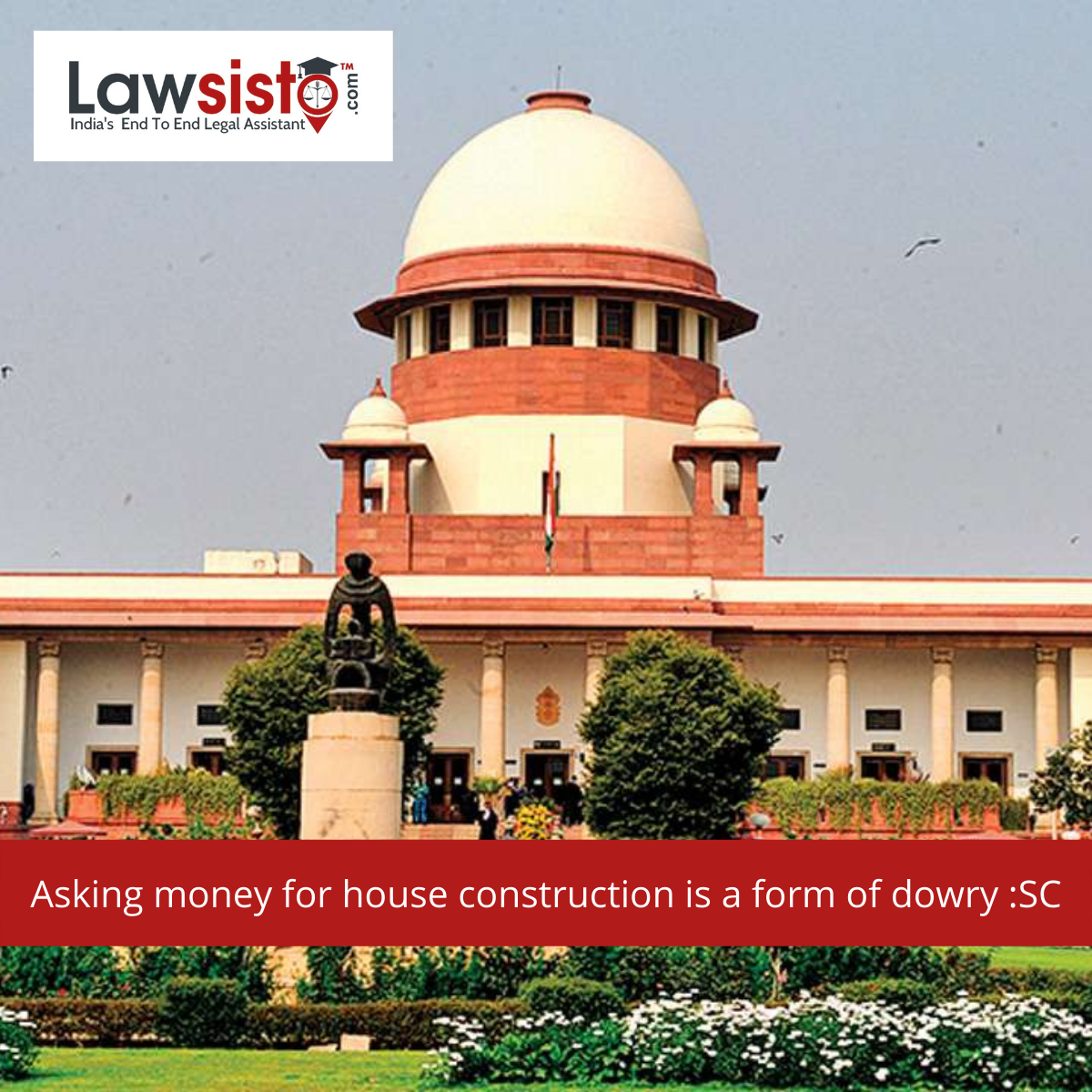Latest News
SC Overturned MP High Courts Verdict on Dowry Death

Dowry, in its widest sense, means monetary benefits or the gifts a bride provides to her husband's family when she marries. Dowries have a long and bitter history in Europe, South Asia, Africa, and other patrilineal cultures where women are expected to live with or near their husband's family (patrilocality). Although dowry has not originated from the Indian subcontinent, the large number of dowry-related cases and heinous crimes against women give a negative and false but true impression of its origin in the Indian subcontinent. The fact that the dowry system is still widely accepted in many parts of India makes this social evil not only discriminatory against women but also for the people associated with them.
It is a practise as well as a problem in Indian marriages. Dowry has become a requirement for marriage in many parts of the world, particularly in Asian and African countries. As time passed, the concept of dowry was reduced to a simple exchange of money and other valuables rather than the bride's true worth. Dowry is a very old concept, but perceptions of it have shifted over time. The shift in perception from women being suppressed to women being suppressed by women has altered society's perception of dowry. The current laws have proven to provide significant relief to the suffering, but they have also produced literate but morally corrupt individuals who see such relief as a tool for torturing their own family members.It should also be noted that both sides of the use and misuse of dowry laws exist in society at the same time, but despite such a massive change in people's perception, the reality that dowry is a crime stays unchanged. Whether accepted by society or not, the very origin of dowry, where property is given to women as a security for independence, is lost and wrong.
A prime example of this still prevalent social evil can be seen in the case of the state of Madhya Pradesh v/s Jogendra and ors. Geeta Bai, the deceased, was 18 at the time of her marriage on May 7, 1998. Geeta Bai committed suicide by dousing herself in kerosene and setting herself on fire in her matrimonial home. On April 20, 2002, she was admitted to the Community Health Centre in Baroda and died the next day. She was five months pregnant at the time of her death. Unlike the deceased's mother and brother-in-law, who were acquitted by the Trial Court, her husband and father-in-law were found guilty of the first offence and sentenced to life in prison, rigorous imprisonment for the second, and rigorous imprisonment for the third. The respondents, according to the deceased's maternal uncles, were looking for money from the deceased for a house construction project that her family members couldn't afford. As a result, she was frequently harassed and brutally treated, eventually leading to her death.
The High Court acquitted the father-in-law and overturned the husband's conviction under Sections 304B and 306 of the Indian Penal Code. His conviction was upheld under Section 498-A of the IPC, but his three-year RI sentence was reduced to one year because the demand for money for house construction cannot be construed as a demand for dowry under valuable property defined under Section 2 of the Dowry Prohibition Act, 1961, but the following was overturned in the supreme court of India.
The three-judge bench of NV Ramana, CJ, AS Bopanna, and Hima Kohli found that a demand for money for the construction of a house could be treated as a dowry demand, which was contrary to the Madhya Pradesh High Court's decision. They also found the Madhya Pradesh High Court's observation to be erroneous and held that the term "dowry" should be given an expansive meaning to encompass any demand made on a woman.
Document:



































































































